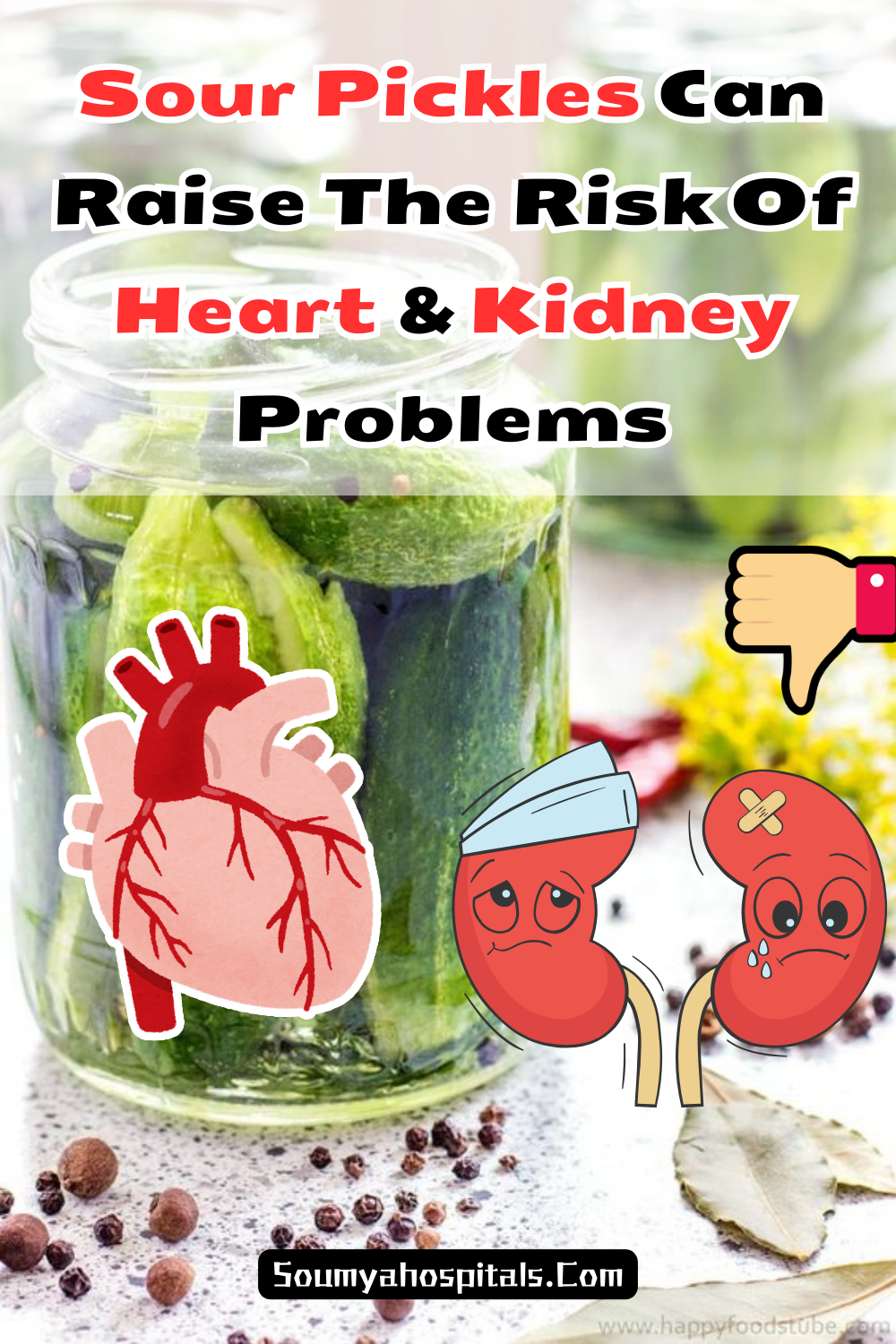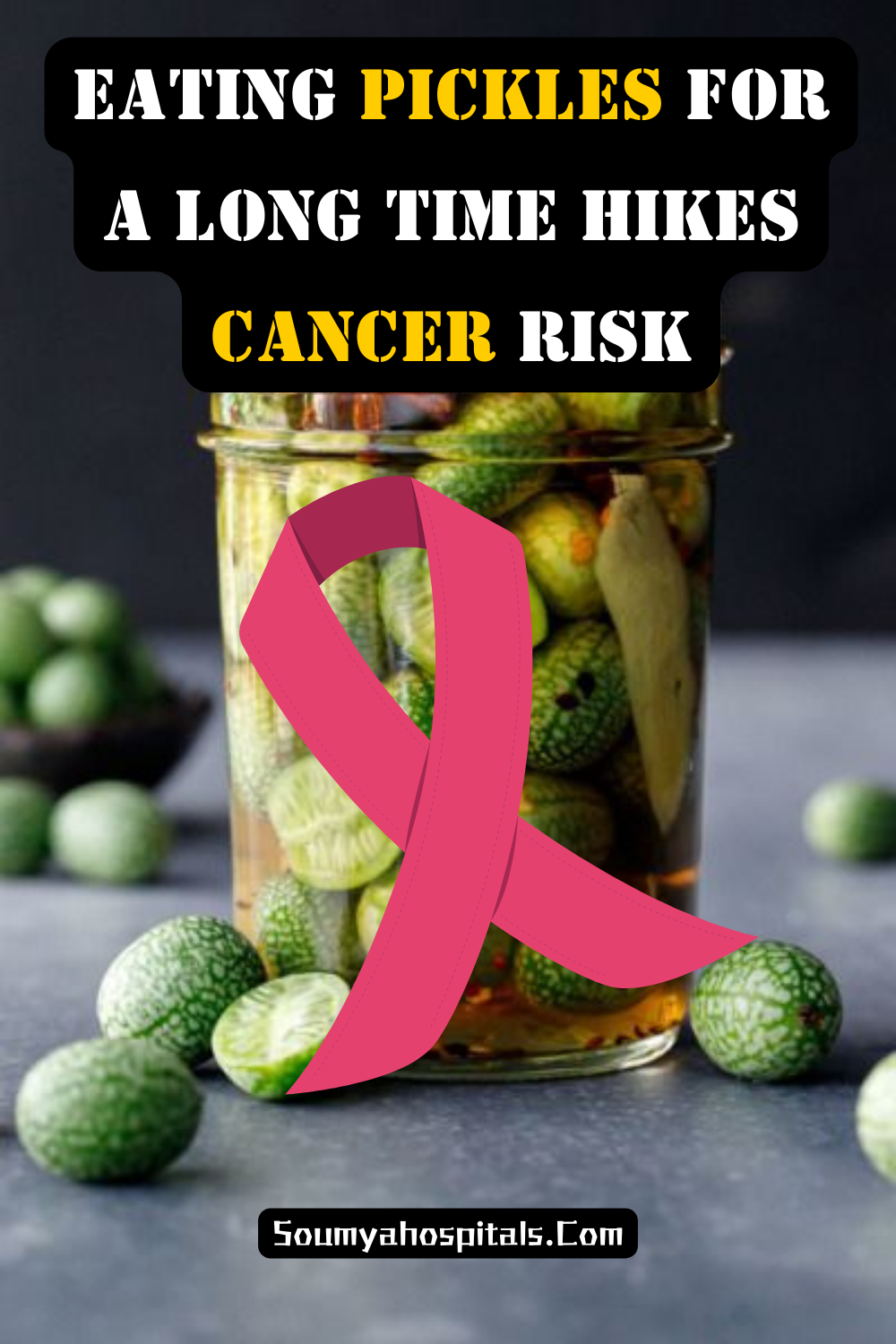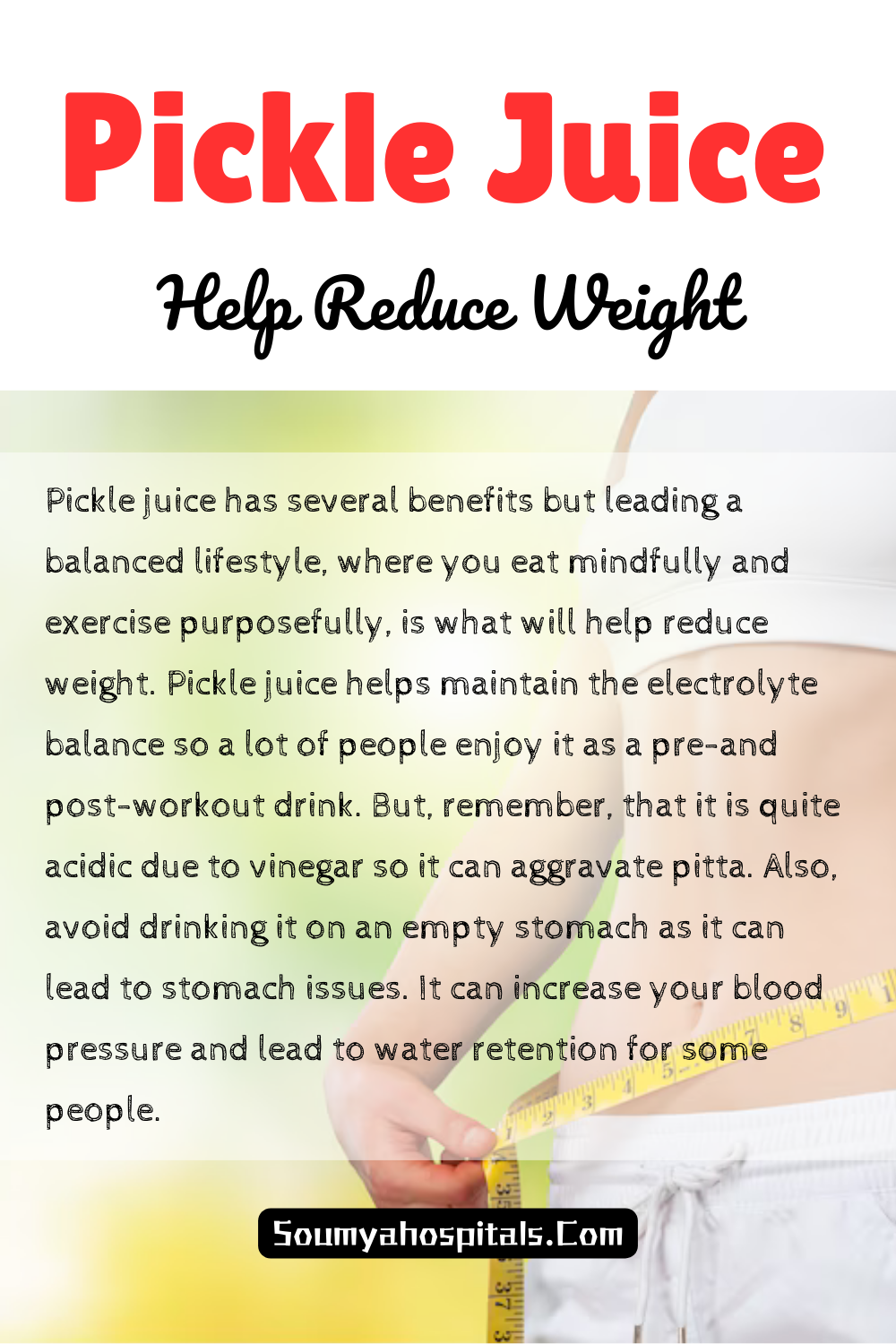Love their sweet and sour flavor but worried whether pickles are bad for you? A pickle has a lot to offer – support to the helpful gut bacteria as a probiotic, fighting cell damage with its antioxidants, and a blood sugar-lowering effect, to name a few. Check these 6 benefits of pickles.
Also Check: Vascular Disease NCLEX Questions
If you eat in moderation, they can easily be among your daily serving of 5 veggies. But eat too many, and you are in trouble – sadly, it’s entirely possible to overdose on pickles. They are high in sodium and sugar and have also been linked with cancers of the stomach and esophagus. Here’s a look at what happens when you eat too many pickles.
Sour Pickles Can Raise The Risk Of Heart And Kidney Problems

In most cases, the pickling process involves the addition of a brine solution. So, like many preserved foods, pickles are very high in sodium.
A small spear of a cucumber or kosher dill pickle packs in 283 mg sodium. A 4-inch-long pickle boasts a whopping 1092 mg.
It takes just 3 pickles to cross your daily quota of sodium. Excess sodium increases the risk of heart and kidney diseases. Buy pickles that have low sodium, without compromising on the flavor.
To put the numbers in perspective, a normal healthy adult shouldn’t have more than 2,300 mg a day, that is 1 tsp salt. For a child aged 4–8 years, it is no more than 1,900 mg, while kids aged 9–13 years can have 2,200 mg.
Since sodium controls your blood volume and pressure, too much of it can cause your blood pressure to shoot up. This is a problem for anyone with health issues like hypertension or cardiovascular problems. The recommended intake for someone with kidney disease, liver cirrhosis, and heart problems is even lower than the 1,500 mg permissible for someone with high blood pressure.
The Centers for Disease Control actually caution that high sodium intake is already a problem in the country. Every 9 out of 10 kids have more sodium than they should, raising their risk of stroke and heart disease later in life. And 1 in 9 kids already has higher blood pressure than normal.
High Sodium Can Affect The Kidneys And Raise Blood Pressure
When you eat very salty foods like a pickle, it alters your sodium balance. The kidney function slows down and less water is drained from your body. In turn, this causes your blood pressure to rise. If you already have a cardiovascular problem or hypertension, this rise in blood pressure should be a red flag. It can bring on a stroke or a fatal cardiac event.
And if you have kidney disease, this also increases the protein in your urine – a major issue that increases your chances of decline in kidney function. Those aged 50 and above, as well as diabetics, are also at risk of developing complications linked to salt or sodium intake.
Sweet Pickles Can Raise Risk Of Diabetes, Hypertension, And High Cholesterol
If you have a preference for sweet pickles, you may have another reason to watch how much you eat. A single 3-inch-long pickled gherkin has about 6.39 gm of sugar. And as you may agree, it is unlikely you’ll eat just one!
It takes just 4 pickled gherkins to hit the daily limit of 25 gm added sugar for a woman and 6 pickles to hit the 37.5 gm limit for a man.
According to the American Heart Association, calorie intake from added sugars should be limited to 150 calories or 37.5 gm for males and 100 calories or 25 gm for females. It is easy to see how enjoying just 4–6 pickles might make you hit your daily limits. And given the amount of added sugars in everyday processed foods and drinks, it may be wise to treat sweet pickles with a little caution. Try your best to avoid binging on them.
If you have blood glucose- or insulin-related problems, including type 2 diabetes, pickles should be on your list of foods to consume in controlled amounts. While moderate sugar intake is fine, carbohydrate intake should be limited to 45 to 60 grams per meal overall, according to the American Diabetes Association. This includes the sugar that you get from pickles.
Added Sugar Increases The Risk Of Heart Diseases
Though we usually don’t associate sugar with heart disease, recent research suggests that excess sugar can raise your blood pressure and levels of bad cholesterol and triglycerides, while lowering the good HDL cholesterol level. A high sugar consumption is also linked with damage to the blood vessels and nerves. All of these are risk factors for heart disease. Sugar can raise your risk of heart disease even if you are not overweight or in ill health. More worryingly, the link between calories from added sugar and the risk of death from cardiovascular diseases holds true regardless of age, gender, BMI, and physical activity levels.
Choose a pickle that has vinegar as the base. Vinegar has a protective effect against high blood pressure and high cholesterol.
If your child already has a sweet tooth, the added sugar could contribute to a weight problem. The American Heart Association suggests that kids eat no more than 25 gm of added sugars a day. That’s about 6 teaspoons worth for kids aged 2–18 years. A diet high in sugars can raise the risk of obesity and heart disease and cause high blood pressure.
Make an effort to check labels or switch to a pickle that has less sugar. While some researchers suggest that a vinegar-based pickle can help lower blood sugar in those with insulin resistance, it has yet to be established if this will help someone with type 2 diabetes. Vinegar can also lower high blood pressure. But not all pickles contain vinegar. If you’re having a pure brine-based pickle, you won’t be able to get this benefit in the first place.
Eating Pickles For A Long Time Hikes Cancer Risk

A 2014 study on gastric (stomach) cancer patients found that 77% of the patients were in the habit of having pickles more than 4 times a week. The researchers suggest that “pickle consumption was an independent risk factor for developing gastric cancer and the risk was 11.48-fold higher compared to those not consuming pickles.” There also seems to be a 2-fold higher risk of esophageal cancer associated with pickled vegetables, but more research is required to establish it.
People who have pickles more than 4 times a week may have a higher cancer risk. Eat fewer pickles and have pulses to counter their ill effects on your stomach.
Yet another study on patients in South India, where consumption of fruit and vegetable pickles is very common, found pickles to be an independent risk factor for developing gastric cancer.
Note that salt itself is not carcinogenic, but too much salt affects the mucosal lining of the stomach, creating lesions and causing gastritis, which may turn into cancer. Thankfully, pulses seem to have a protective effect on the stomach as found in the study on South Indian patients. If you know you have gastritis, avoid pickles and follow this gastritis diet.
Pickle Juice Does Not Enhance Sports Performance
Some theories suggest that pickle juice can help with sports performance. However, to achieve the improved performance and balance in body temperature (thermoregulation) from pickle juice, researchers suggest larger volumes may be needed. Small quantities of about 2 ml pickle juice per kg of body weight did not bring any results.
In one study, the time that test subjects reached exhaustion was almost identical regardless of whether they had pickle juice, deionized water, or hypertonic saline before exercise. Core temperatures followed similar patterns, rising after exercise at a similar rate.
While very large volumes of pickle juice may improve your sports performance, the huge amount of sugar, sodium, and vinegar you consume will reverse any benefits and cause you more harm.
In other words, you may drink the pickle juice hoping for miracles, but don’t hold your breath. All you’ll likely get is the sodium and sugar.
Even if this isn’t why you’re tanking up on pickle juice, you may have other reasons. For instance, pickle juice may ease muscular cramps, which is why it is being avidly studied.
The problem is that the pickle juice itself contains no vegetable in it. As a result, you won’t get the nutrients from the vegetable. Instead, you will end up consuming high levels of sodium, sugar, and vinegar.
At very small amounts, this may still be fine if you are of normal health. But if you’re trying to use it therapeutically or have a weakness for pickle juice, you should be cautious. This is especially true if you have issues with blood pressure or blood sugar.
Are Pickles Always Bad? No, But Fresh Vegetables Contain More Nutrients Than Pickled Ones
If you were to look at a pickle purely from the nutrient content, it may be fine to include it as one source of your “5 a day.” You do get vitamins and carbohydrates, but somewhat less than the vegetable contains. Some of the water-soluble vitamins like vitamin C and the B vitamins are lost during brining.
While it’s always best to choose fresh veggies over pickled ones, a small pickle could be 1 among your daily 5 servings of fruits and veggies, but not if you have high blood pressure or a kidney condition.
Also be aware of the sugar and sodium you are consuming. If you have health problems such as hypertension or kidney disease that could be adversely affected by regular pickle consumption, pickles are better eaten as an occasional treat.
Pickles were created to preserve certain foods for consumption over time, even in seasons when fresh vegetables were hard to come by. Today, however, new agricultural technology and seamless logistic connections mean access to produce from around the world all year round. Given this availability, you may do better with fresh produce rather than depending on a pickle to get your daily 5 servings of fruit and vegetables.
Your Doubts Answered
1. What Are Some Healthy Ways To Eat Pickles?
[expert_opinion expertname=’juliepecarski’ opinion=”Look for fermented brands of pickles. Because they are fermented, they will be loaded with healthy bacteria which is beneficial to our digestive and immune systems. You can also make your own! Pickles, on their own, can be extremely high in sodium and include preservatives making it important to read labels to know what you are eating. Personally, sea salt, water, and cucumbers/vegetables should be the only ingredients!”]
[expert_opinion expertname=’swetavikram’ opinion=”Mindfully, in small quantities along with your meal. As long as a meal is primarily sattvic (energy-boosting and enlivening), a touch of fermented food as a condiment will typically only be beneficial. There are generally to be used as a condiment or if you do decide to add them to a meal you need to use them sparingly. And if you are a Pitta type, ease up on them in summer because of their heating nature they might just tip you over the edge.”]
[expert_opinion expertname=’jenniferkanaan’ opinion=”Personally, I love pickles on my sandwich, as long as it is made with healthy ingredients and ideally gluten free. A friend also suggested once to have pickles with peanut butter. You can either put the slices on a peanut butter sandwich or mix the pickle juice with peanut butter and spread it on apple slices. Your call! Just make sure to avoid peanut butter with added sugars or hydrogenated fats.”]
2. Can Drinking Pickle Juice Help Reduce Weight?

[expert_opinion expertname=’swetavikram’ opinion=”Pickle juice has several benefits but leading a balanced lifestyle, where you eat mindfully and exercise purposefully, is what will help reduce weight. Pickle juice helps maintain the electrolyte balance so a lot of people enjoy it as a pre-and post-workout drink. But, remember, that it is quite acidic due to vinegar so it can aggravate pitta. Also, avoid drinking it on an empty stomach as it can lead to stomach issues. It can increase your blood pressure and lead to water retention for some people.”]
[expert_opinion expertname=’jenniferkanaan’ opinion=”Pickle juice contains good quantities of acetic acid, which is known to help with digestion and stimulate metabolism, which is somehow different from weight loss.”]
3. Is There A Healthy Swap For Pickles?
[expert_opinion expertname=’jenniferkanaan’ opinion=”It really depends why you eat pickles, the salty flavor or the acidic intensity. I would replace it with kale chips, carrots, and hummus, nuts, olives, or roasted pumpkin seeds.”]
4. Are Pickles Good To Eat During A Diet?
[expert_opinion expertname=’jenniferkanaan’ opinion=”Yes, pickles and pickle juice has quantities of acetic acid, which improves digestion and boost the metabolism. So, in a way, it improves in diet and weight loss. Just make sure not to eat too many pickles as this might cause water retention.”]
